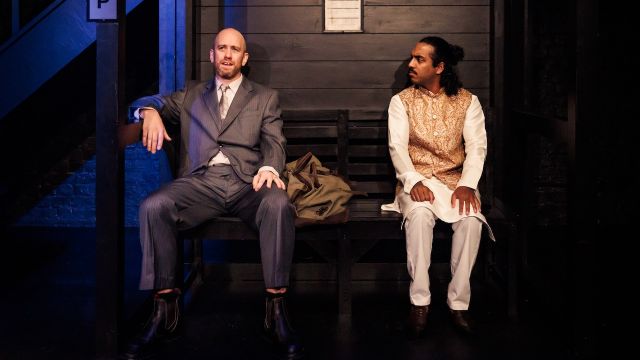Straight White Male
Alex Buzo’s very controversial – and prosecuted for ‘obscenity’ – two-hander Norm & Ahmed dates back to 1968. Writer and director Nick Parsons thought to revive it and play it alongside a long-considered piece of his own: Radha & Ryan. The aim being to compare and contrast two eras and the sorts of Australian prejudice and attendant violence – then and now. Both plays are set at bus shelters, late at night and both involve chance encounters.
Buzo was an acerbic and very funny observer and critic of Australia. At times you can almost hear his exasperation behind his writing at mental laziness, lack of imagination, conformity, and prejudice. In Norm & Ahmed that’s expressed in his deliberately heavy-handed (satirical) employment of cliché stock phrases in Norm’s dialogue. Norm (Danny McGinlay) is the Australian bloke - a white middle-aged widower, a storeman and packer, sitting in a bus shelter late at night. Ahmed (Isaac Rajakariar), a Pakistani student in traditional dress, hurries past, on his way home… but Norm stops him. On the pretext of being ‘friendly’.
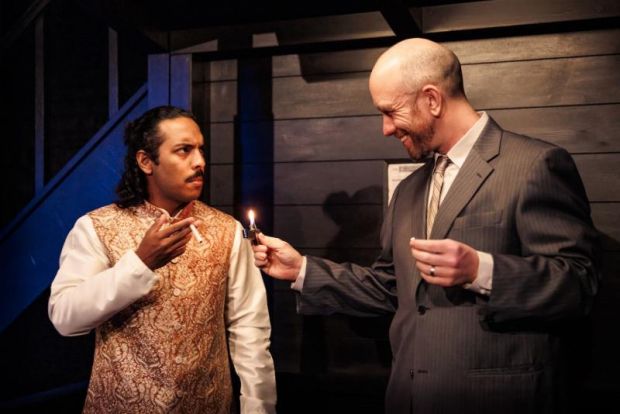
Ahmed’s dialogue is, in its way, equally cliché. As his second language, his English is literary, ponderous and ornate. The setting, the time of day and Norm’s fake bonhomie immediately create intrigue. Norm asks questions, he advises, he wants to help. All Ahmed wants is to get away – until he begins to take Norm’s good bloke routine at face value. Ahmed is anxious, but tone deaf and sincere; he’s essentially the ‘feed’ for Norm’s loquacious, patronising, cryptoracist – but revealing - raving. What emerges – and this is Buzo’s real purpose – is Norm’s sad restrictions, his loneliness, alienation, his sense of failure and his fear of the Other.
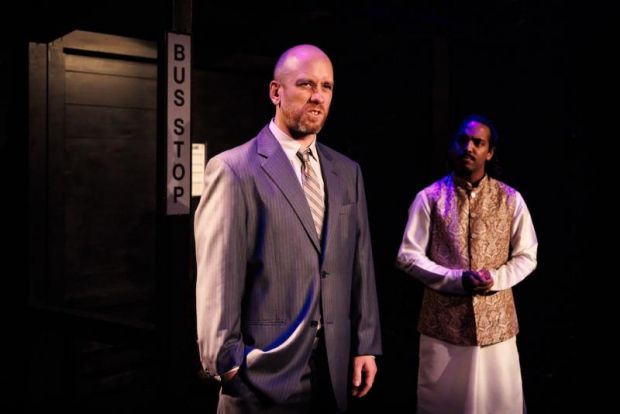
For me, Danny McGinlay’s Norm misses some opportunities. It’s all a bit too loud and one-note. His menace is a blunt instrument and tension is diminished. We expect something bad to happen but rather than a growing sense of dread, we become impatient for it to happen. Isaac Rajakariar, on the other hand, rings the changes nicely between fear, relaxation and the mistake of taking Norm as anything other than an angry, frustrated man.
Where Buzo’s play is stylised but relatively straightforward in intention, Nick Parson’s Radha & Ryan (which follows with the same bus shelter set) is naturalistic, wide-ranging, almost a play of ideas. It’s a very different play, albeit with thematic if tenuous links to Norm & Ahmed.
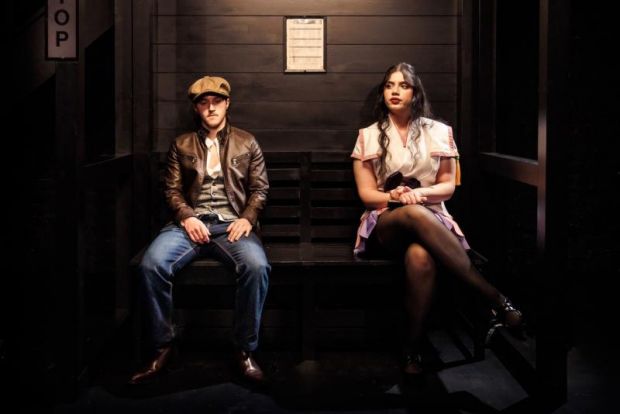
Rhada (Gursimar Kaur) has fled a party, escaping a man who has sexually assaulted her. It’s 2 am and to her dismay, the buses have stopped running. Then Ryan (Sam Eade) emerges from the shadows. He’s slim, soft voiced, enigmatic but seems non-threatening. He claims to be waiting for an Uber and offers Radha a lift. While she tries to get through on her mobile for other help and the Uber fails to arrive, they spar and then engage – with many illuminating reveals of backstory and attitude. Both actors are believable, even touching in their way. Sam Eade manages to make his articulacy sound natural and his probing questions challenging but sincere. Gursimar Kaur has a very engaging stage presence and the ebb and flow of her responses to Ryan – rejecting, then listening and considering, then pissed off, then sympathetic, and back again are all clearly registered.
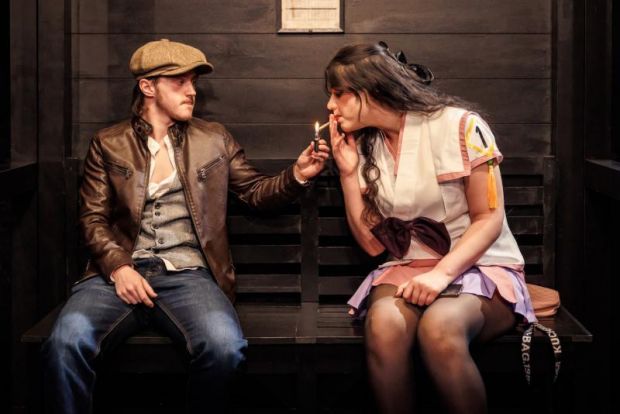
Nick Parsons’ text is sympathetic to his characters, and they feel real. Unlike Buzo, his play is by no means satire. He has thought deeply and widely about the very contemporary issues Radha and Ryan debate – principally the nature of ‘masculinity’, an issue omnipresent for Ryan – but their exchanges do perhaps go on a bit too long because - despite the growing warmth and understanding between them - the tension is intellectual (not sexual). We do start to wonder just where this is going. Some cuts and some more shaping might be needed. The ending echoes the violence of Norm & Ahmed (and springs from a similar source), but it feels almost obligatory, and the conclusion is open-ended.

It's an interesting experiment on Nick Parsons’ part, one certainly worth doing – and seeing – and the contrast between the past and the (only apparently) more complex present is sharp.
Michael Brindley
Photographer: Darren Gill
Subscribe to our E-Newsletter, buy our latest print edition or find a Performing Arts book at Book Nook.

